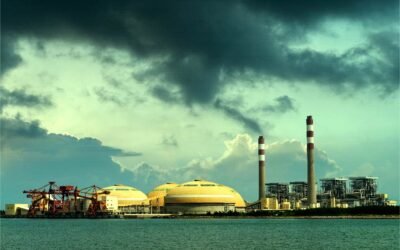Recently, I had the privilege to attend and present at the Greentech Festival, an excellent event in the realm of sustainability. This influential gathering left a profound impact, and I am delighted to share a comprehensive analysis of my experiences.
The Greentech Festival was a vibrant hub of activity, pulsating with the energy of engaged participants. With 14,000 visitors, 350 speakers across five stages, and 200 exhibitors, the event was a melting pot of diverse stakeholders, fostering an environment ripe for meaningful dialogue and collaboration.
A notable feature of the Greentech Festival was its exhaustive exploration of sustainability issues. The conference addressed a broad spectrum of sectors, including transportation, agriculture, energy efficiency, automation, and building infrastructure. Particularly commendable was the inclusion of discussions on sectors traditionally viewed as difficult to decarbonize due to technological and financial limitations, such as the aviation industry and building infrastructure. This inclusive approach underscored the necessity of a holistic strategy for achieving sustainability.
What distinguished the Greentech Festival was its emphasis on pragmatic solutions to existing challenges. The panels did not merely engage in high-level discourse; instead, they delved into specific bottlenecks related to financing, policy, and technology. This practical orientation provided attendees with actionable insights and strategies for overcoming current obstacles in the sustainability landscape.
The composition of the panels at the Greentech Festival was particularly noteworthy. They featured a balanced mix of experts from research, industry, and policy domains, ensuring a multidisciplinary perspective on each issue. This diversity facilitated richer discussions and more comprehensive analyses of sustainability challenges and opportunities. Coming from an energy background, the conference content illuminated how tunnel-visioned I had been regarding sustainability. It became evident that numerous sectors urgently require sustainable practices. Agriculture, in particular, stood out as an area significantly neglected over the years, where innovation and technology have been slow to permeate.
One of the strengths of this conference was its facilitation of critical debates on contentious topics such as carbon capture. These discussions are essential for advancing sustainability dialogues. The panelists and presenters did not shy away from presenting opposing viewpoints, thereby offering the audience a nuanced understanding of complex issues. For instance, debates scrutinized the viability and implications of carbon capture and storage, questioning whether it serves as a legitimate solution or merely prolongs the reliance on the oil and gas industry. Similarly, discussions on the pace of innovation in sustainable air travel and the dual impact of AI on sustainability were particularly enlightening.
Beyond the conference sessions, the event showcased a large number of exhibitors presenting innovative solutions. It was inspiring to see companies from various sectors demonstrating their commitment to sustainability through practical solutions. The Startup Land was an excellent initiative, highlighting brilliant concepts in sustainability. This area provided a platform for emerging startups to display their innovative ideas and technologies, further enriching the conference experience.

Key Takeaways
- The festival’s vibrant and engaged atmosphere was a catalyst for productive interactions and knowledge exchange.
- The comprehensive coverage of sustainability, including hard-to-decarbonize sectors, highlighted the need for an all-encompassing approach.
- The panels’ emphasis on real-world solutions to current bottlenecks in financing, policy, and technology provided valuable, actionable insights.
- The diverse mix of researchers, industry leaders, and policymakers enriched the discussions, offering well-rounded perspectives.
- The open debates on topics such as carbon capture and the role of AI contributed to a deeper understanding and critical evaluation of these issues.
Greentech Festival was an excellent event that provided a comprehensive and pragmatic examination of sustainability. The engaged atmosphere, extensive coverage, and focus on actionable solutions made it an invaluable experience. The diversity of perspectives and critical debates further enhanced the festival’s impact, fostering a deeper understanding of the complexities surrounding sustainability. I am eager to see how these discussions will influence future sustainability initiatives and drive meaningful progress.
Europe: +49-89-12250950
Americas: +1 408-604-0522
Japan: +81-80-7808-1378
GCC/Rest of APAC: +971-58-1602441
More About our: Services
Recent Insights
Switching Gears: The U.S. Move Toward Gas-Insulated MV Switchgear
The article authored by Muhammad Usman, Analyst at PTR Inc. provides a comprehensive analysis of the U.S. medium-voltage (MV) electric switchgear market, highlighting a shift from traditional air-insulated switchgear (AIS) to more advanced gas-insulated switchgear...
Offshore Wind Growth and HVDC Developments in the North Sea: Key Trends and Future Outlook
Europe's ambitious goal of becoming the first climate-neutral continent by 2050 has fueled significant development in offshore wind energy in the North Sea, where key countries are targeting a combined 120 GW of wind capacity by 2030. The UK leads with a target of 40...
Renewable Energy Targets, Challenges and Solutions
The report, authored by Kamil Maqsood, Senior Business Analyst, examines the significant challenges Africa’s power sector faces, particularly in renewable energy investment and deployment. A key issue is that electricity tariffs across many African economies are not...
Texas Power Grid Failure: Timeline of Events & Possible Grid Changes Ahead
The recent Texas power failure has exposed the vulnerability of not just conventional power generation but renewable generation to frigid temperatures.
UK’s Power Grid: Possible Consequences of Brexit
With the end of the Post-Brexit transition period on 31st December (2020), eyes have focused on the United Kingdom’s electricity grid and how it will function and adjust with the change.
Changed Energy Outlook following Georgia Run Off
President Elect Joe Biden is set to take oath on 20th January,2021, and although his win was confirmed on January 6th, the senate’s control was undecided until the recent victory of Senator Jon Ossof and Senator Raphael Warnock, both Democrats, in the Georgia run-off elections.
Climate worries pushing manufacturers away from Coal
Globally there is a growing consensus to move towards less carbon intensive power generation in a bid to tackle pollution and environmental concerns. This consensus is reflected in the decline[SS1] [KM2] of coal consumption in 2019, although there are disparities...







